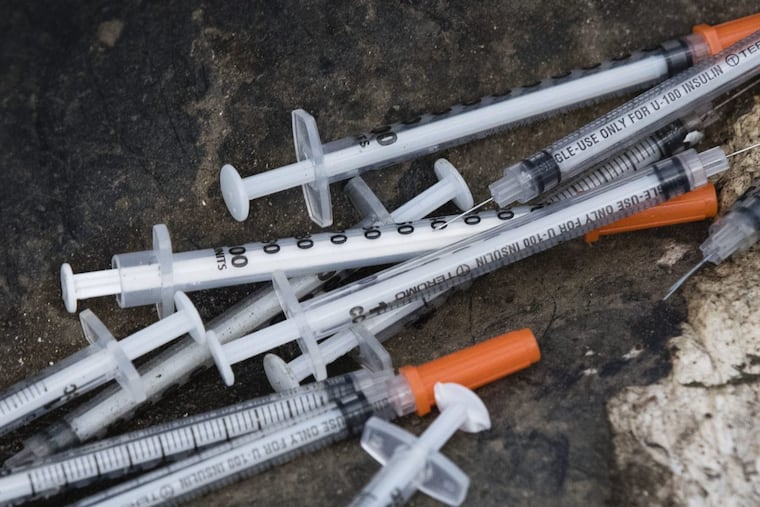There’s a way to stem the increase in HIV infections | Editorial
Injection drug use is often referred to as a risk factor for HIV and Hepatitis C. But it is in fact the lack of access to sterile unused syringes that is driving these new infections — not drugs themselves.

While overdose deaths declined last year in Philadelphia, HIV infections increased. Last week, the Philadelphia Department of Public Health released data that show an increase in new HIV infection since 2016 after a decade of decline. The increase has been attributed to infections among people who inject drugs — 59 of whom were newly diagnosed with HIV in 2018, double the number of people who were diagnosed in 2016. Bucks County has been experiencing a similar increase.
These alarming statistics should sharpen the focus of the city’s and state’s response to the opioid crisis. While there has been a large push to increase access to naloxone — a medication to reverse opioid overdoses — and to increase access to quality treatment, the state still lags behind others when it comes to access to unused syringes. According to the Centers for Disease Control, 19 states allow needle exchanges while three other states allow exchanges in limited circumstances.
Injection drug use is often referred to as a risk factor for HIV and hepatitis C. But it is in fact the lack of access to sterile unused syringes that is driving these new infections — not drugs themselves.
Syringe-exchange programs, where people who inject drugs can discard their used syringes and get new, unused ones, are a recommended strategy to prevent HIV infections both by the CDC and Surgeon General Dr. Jerome Adams. And yet, they are still technically illegal under Pennsylvania’s drug paraphernalia law.
In the past two sessions of the General Assembly, bills that would allow for syringe exchange were introduced in the House. Both went nowhere. Rep. Ed Gainey, a Democrat from Allegheny County, is planning to reintroduce a syringe-exchange bill and is currently circulating a co-sponsorship memo.
In a meeting with The Inquirer’s editorial board in the fall, Gov. Tom Wolf expressed his support of syringe-exchange programs. He should push for a syringe-exchange bill to pass in Harrisburg this session.
In Philadelphia, Prevention Point in Kensington is operating as the sole syringe-exchange program since 1992 under the authority of a municipal executive order.
The increase in HIV infection rate is a signal that it is time for a second program in Philadelphia. Prevention Point opens pop-up exchanges all over the city in specific times but having another exchange also would connect people to other services.
Even better, the city should support opening a supervised-injection site in South Philadelphia, which is experiencing an increase in overdose deaths, that also would operate as a syringe exchange. The site could be a hub to increase the use of PreP, a daily pill that reduces the chances of contracting HIV among people who inject drugs — a population that Health Commissioner Dr. Thomas Farley says is hard to reach because they avoid traditional services.
The new data are a reminder that reducing overdose death is not the only outcome that we should follow as we assess our response to the opioid crisis. Even when this crisis is behind us, the consequences for some will be lifelong unless we act to prevent further harm.